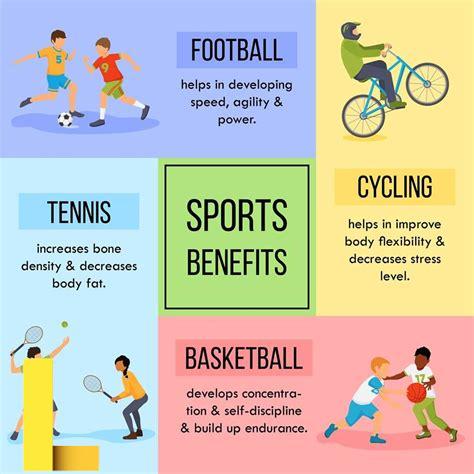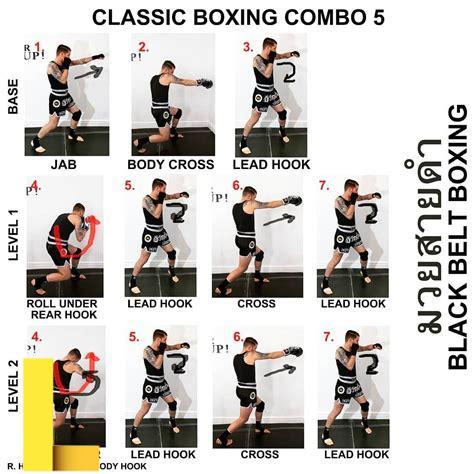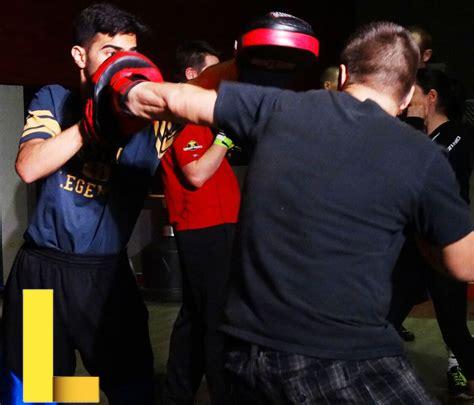Unleash Your Inner Fighter: The Joyful World of Recreational Boxing

Kind reader, recreational boxing is a popular form of exercise and stress relief for many people around the world. This non-competitive sport allows individuals to learn the basic boxing techniques without the pressure of fighting in an organized match. Whether you are looking to improve your physical fitness, learn self-defense techniques, or simply have fun, recreational boxing offers many benefits that can enhance your overall well-being.
The Health Benefits of Recreational Boxing

Recreational boxing is not just a great way to build endurance and lean muscle but it also offers numerous health benefits. The fast-paced nature of boxing helps enhance cardiovascular health while the strength training component helps improve bone density and muscle mass. Additionally, boxing is a disciplined sport that requires focus and concentration, leading to improved mental health. Research conducted by the American Council on Exercise found that a one-hour boxing session burns between 400 to 900 calories, which is equivalent to running 5 to 10 miles.
Physical Benefits of Recreational Boxing
Boxing provides a full-body workout, which improves physical fitness and overall health. The combination of rapid movement and forceful punches engages muscles and enhances hand-eye coordination. Here are some physical benefits of recreational boxing:
| No | Physical Benefits |
|---|---|
| 1 | Improved cardiovascular health |
| 2 | Better hand-eye coordination |
| 3 | Enhance strength and endurance |
| 4 | Increased flexibility and agility |
| 5 | Improved bone density and muscle mass |
Mental Benefits of Recreational Boxing
Mental health is just as important as physical health, and recreational boxing can help enhance both. The discipline, focus, and concentration required for boxing improve mental health by reducing stress and anxiety and increasing self-confidence and self-esteem. Studies have shown that repetitive motions of boxing can also help with impulse control, enabling better decision making.
| No | Mental Benefits |
|---|---|
| 1 | Reduced stress and anxiety |
| 2 | Increase self-esteem and self-confidence |
| 3 | Improved impulse control |
| 4 | Better focus and concentration |
Health Benefits of Recreational Boxing

Aside from improving physical fitness and mental toughness, recreational boxing has numerous health benefits that make it a fun and effective workout.
Burns Calories
Boxing, especially sparring sessions, can burn up to 500 to 700 calories an hour. It’s a high-intensity workout that engages multiple muscle groups, making it an efficient way to shed extra pounds and maintain a healthy weight.
Strengthens the Cardiovascular System
Boxing promotes heart health by strengthening the heart and lungs. By engaging in cardiovascular exercises such as jumping rope, boxing footwork, and bag work, you can increase your endurance and build your cardiovascular system.
Strengthens the Upper Body
Most punches in boxing require great upper body strength, which serves to strengthen the muscles of the arms, shoulders, chest, and back. With consistent boxing training, people who engage in recreational boxing can develop lean and defined muscles in their upper body.
Increases Agility and Coordination
The fast pace of boxing, with its rapid movements and sudden shifts in direction, builds agility, balance, and coordination. By practicing defensive movements and throwing punches, you can improve your reaction time, coordination, and overall agility.
Reduces Stress and Anxiety
Recreational boxing offers a unique outlet for stress and anxiety relief. The intense workout can be a welcome distraction from stressors in daily life, while the meditation-like focus required during boxing can help calm the mind. The endorphins released during exercise can also lift mood and reduce symptoms of depression.
Improves Mental Toughness
Boxing is not just a physical workout but a mental one as well. The training required to become an accomplished boxer involves developing mental toughness, persistence, and discipline. By pushing yourself past your limits and embracing discomfort, you can build confidence and resilience both inside and outside the gym.
Boosts Self-Confidence
Boxing can be an empowering sport, especially for those who struggle with self-confidence. The sense of strength and accomplishment that comes with mastering a new skill or landing a difficult punch can help boost overall self-esteem.
| No | Important Information |
|---|---|
| 1 | Recreational boxing is a non-contact, fitness-based version of traditional boxing. |
| 2 | Usually, no punches are thrown at the head, and participants wear gloves and headgear. |
| 3 | Recreational boxing classes improve cardio fitness, strength, and coordination in participants. |
| 4 | It can be a fun and challenging way to get in shape and relieve stress. |
| 5 | Recreational boxing does not involve sparring or fighting other people, which reduces the risk of injury. |
| 6 | Many gyms and fitness centers offer recreational boxing classes for all skill levels. |
| 7 | Participants in recreational boxing can also use heavy bags and focus pads to practice techniques and improve their skills. |
| 8 | Recreational boxing can be enjoyed by people of all ages and fitness levels. |
Techniques in Recreational Boxing

Recreational boxing is a high-intensity workout that requires a lot of training to perfect the necessary techniques. The following are some of the techniques that can help you become a better recreational boxer:
1. Footwork
Footwork is essential in boxing as it helps you to move around the ring and avoids getting hit by your opponent. Proper footwork helps you maintain balance and control your body. Fighters must learn to maintain a boxing stance, move forward, backward, and sidestep with the guard always up. The agility ladder and cone drills are a great warm-up, but shadowboxing is the best drill to hone your footwork.
2. Punching Combinations
In recreational boxing, punching combinations are an essential aspect of the game. A combination of punches is more effective than a single punch. Punching combinations such as the jab-cross, jab-cross-hook, and jab-cross-hook-uppercut are some of the most common combinations. It is important to mix up combinations to keep your opponent guessing.
3. Defense Techniques
It’s not just about attacking your opponent; you must also defend yourself from being hit. You can use defensive techniques such as the slip (moving the head to avoid a punch), bob and weave (moving the upper body to avoid a punch), and the parry (blocking a punch with an open glove). The best way to learn defensive skills is to practice with a partner or on a heavy bag.
4. Sparring
Sparring is the best way to improve your technique in recreational boxing. It is where you put your training into practice against a real opponent. Sparring helps you to develop rhythm, timing, and strategy. When sparring, it is important to use proper gear such as headgear, gloves, and mouthguards. Beginners should take it slow and focus on technique rather than power.
5. Wrapping Hands
Wrapping hands correctly can prevent injuries such as boxer’s fractures and carpal tunnel syndrome. A good hand wrap should be tight enough to immobilize the joints but not so tight that it cuts off circulation. The wrapping should start at the wrist, go to the knuckles, and back down to the wrist. Boxers should learn how to wrap their hands correctly as part of their training.
6. Strength and Conditioning
In recreational boxing, strength and conditioning are essential to improve overall performance in the ring. The workout should include a combination of cardiovascular exercise, strength training, and flexibility training. Running, jumping rope, and shadowboxing are great for cardiovascular endurance. Weightlifting and bodyweight exercises are essential to building strength and power.
7. Nutrition and Hydration
Nutrition and hydration are crucial in recreational boxing. Proper nutrition can improve energy levels, endurance, and muscle growth. Boxers should consume a diet that is rich in carbohydrates, protein, and healthy fats. Drinking enough water is essential to stay hydrated and maintain optimal performance in the ring. Boxers should aim to drink at least eight glasses of water a day.
| No | Recommended Food Choices |
|---|---|
| 1 | Lean meats such as chicken, turkey, and beef |
| 2 | Fruits and vegetables |
| 3 | Complex carbohydrates such as whole grain bread, rice, and pasta |
| 4 | Healthy fats such as nuts and seeds |
Equipment for Recreational Boxing

Boxing requires specialized equipment to protect yourself from injuries and make the training session safer and more enjoyable. Your equipment will vary depending on your gender, age, weight, and skill level, as well as the type of boxing you are doing. Below are some of the essential pieces of equipment you will need for recreational boxing.
Boxing Gloves
Boxing gloves are the most important piece of equipment because they protect your hands from injuries and help you hit harder. Boxing gloves come in different sizes, weights, and styles, so you need to choose one that fits you snugly and comfortably. You also need to choose a weight that is appropriate for your skill level and training goals. For recreational boxing, gloves weighing between 14 and 16 ounces are suitable for most people.
Hand Wraps
Hand wraps are used to protect your wrists and knuckles from injuries and to keep your gloves in place. Hand wraps should be made of a stretchy material and long enough to wrap around your hands multiple times. They should be secured with velcro or tape.
Rules and Regulations for Recreational Boxing

Recreational boxing is a safe and fun activity, but it still has rules and regulations that you need to follow to ensure everyone’s safety and enjoyment. These rules are generally designed to control the intensity of the training, prevent injuries, and promote fairness and sportsmanship. Here are some of the common rules you will encounter in recreational boxing.
Weight Classes
Weight classes ensure that boxers of similar size and weight compete against each other, reducing the risk of injuries. The classes range from flyweight (less than 112 pounds) to super heavyweight (over 201 pounds).
Three-Minute Rounds
Recreational boxing matches typically consist of three-minute rounds, with one-minute rest periods in between. This allows for enough time to get a good workout while maintaining safety and reducing fatigue.
No Hitting Below the Belt
One of the most basic rules of boxing is that no hitting is allowed below the belt. This includes hitting your opponent’s lower back, kidneys, or groin. Hitting below the belt can result in disqualification.
Benefits of Recreational Boxing

Recreational boxing offers a variety of benefits for both physical and mental health. Here are some of the most impactful benefits of recreational boxing:
Physical Benefits
Recreational boxing is a full-body workout that helps increase strength, endurance, flexibility, and agility. The sport demands a lot of energy and requires the use of most major muscle groups in the body. With this activity, you can burn calories while improving your overall physical health.
| No | Physical Benefits |
|---|---|
| 1 | Burns calories and builds lean muscles |
| 2 | Improves cardiovascular and respiratory health |
| 3 | Enhances coordination, balance, and footwork |
| 4 | Boosts flexibility and reflexes |
Mental Benefits
Aside from the physical benefits, recreational boxing provides various mental and emotional benefits. It helps promote stress release, improve self-confidence and self-esteem.
| No | Mental Benefits |
|---|---|
| 1 | Helps reduce stress and anxiety |
| 2 | Increases self-confidence and self-esteem |
| 3 | Develops discipline and focus |
| 4 | Improves brain function and cognitive skills |
Benefits of Recreational Boxing

Recreational boxing is beneficial both physically and mentally. Here are some benefits of participating in recreational boxing:
Physical Benefits
Boxing is an intense full-body workout that leads to a number of physical benefits. Firstly, boxing is an excellent cardiovascular exercise that helps in burning calories thereby helping in weight loss and weight management. Recreational boxing also enhances muscle tone and definition. As boxers constantly move and throw punches, this helps to build the upper body, leg muscles and core muscles of the body. Additionally, boxing helps in improving overall endurance, stamina, coordination and balance.
Mental Benefits
Recreational boxing is not just a physical sport, it also helps with mental strength and agility. Boxing requires quick reflexes and a sharp mind. Therefore, boxing can promote mental alertness and hand-eye coordination as well as improve stress control and overall confidence. It can be a great way to learn discipline, focus, and self-defense.
| No | Physical Benefits | Mental Benefits |
|---|---|---|
| 1 | Burns calories | Promotes mental alertness |
| 2 | Enhances muscle tone and definition | Improves stress control |
| 3 | Improves overall endurance, stamina, coordination and balance | Improves overall confidence |
Improving Fitness through Recreational Boxing

Recreational boxing is a fantastic way to improve fitness while having fun and learning practical self-defense techniques. While boxing is commonly thought of as an intense workout, it can be adapted to all fitness levels. Whether you’re a beginner or an experienced athlete, recreational boxing workouts can help you reach your fitness goals.
Benefits of Boxing Workouts for Fitness
Boxing workouts incorporate a variety of exercises that can improve overall fitness, including:
| No | Exercise | Benefits |
|---|---|---|
| 1 | Shadowboxing | Improves footwork, coordination, and cardiovascular endurance |
| 2 | Heavy bag work | Strengthens upper body muscles and improves striking technique |
| 3 | Speed bag work | Improves hand-eye coordination and punching speed |
| 4 | Jump rope | Builds calf and leg muscles and improves cardiovascular endurance |
| 5 | Calisthenics | Improves overall strength and endurance |
The Importance of Proper Form
While boxing can greatly improve fitness, it’s essential to utilize proper form to reduce the risk of injury. In recreational boxing, coaches and trainers stress the importance of proper stance, hand position, and footwork to improve speed, power, and accuracy. Poor form can also make it more challenging to hit the target, reducing the effectiveness of the workout.
Recreational Boxing FAQ
1. What is recreational boxing?
Recreational boxing is a form of boxing that is practiced for fitness, stress relief, and enjoyment. It is not competitive and does not involve fighting with other individuals.
2. Do I need any prior experience to start recreational boxing?
No, you do not need any prior experience to start recreational boxing. It is a beginner-friendly activity that can be tailored to your fitness level.
3. Is recreational boxing safe?
Recreational boxing can be safe if proper precautions are taken. It is important to wear appropriate protective gear and train under the guidance of a certified coach.
4. Do I need to be in good shape to start recreational boxing?
No, you do not need to be in good shape to start recreational boxing. Boxing can be a great way to get in shape and improve your fitness level.
5. What gear do I need for recreational boxing?
You will need boxing gloves, hand wraps, and a mouthguard. It is recommended to also wear protective headgear and boxing shoes.
6. Can I do recreational boxing if I have a medical condition?
It is recommended to consult with your doctor before starting any new exercise program, including recreational boxing. Your coach can also modify exercises to accommodate any medical conditions.
7. How often should I train for recreational boxing?
This depends on your fitness level and goals. It is recommended to train at least 2-3 times per week for optimal results.
8. Do I have to spar with other individuals in recreational boxing?
No, sparring is not required in recreational boxing. It can be a personal choice and only done with a partner you trust.
9. Is recreational boxing only for males?
No, recreational boxing is for anyone who is interested, regardless of gender.
10. Can recreational boxing help me lose weight?
Yes, recreational boxing can be a great form of cardio exercise and can help you lose weight when combined with a healthy diet.
11. Do I need to have my own equipment to start recreational boxing?
No, most gyms will have equipment available for you to use. However, it is recommended to eventually invest in your own equipment for hygiene reasons.
12. Can recreational boxing improve my coordination?
Yes, boxing involves a lot of movements that can improve your coordination and agility.
13. Will recreational boxing make me bulky?
No, recreational boxing will not make you bulky. It can help you develop lean muscle mass and improve your overall physique.
14. Can recreational boxing be done at home?
Yes, there are many online resources and home workout programs that can help you practice recreational boxing at home. However, it is recommended to also train under the guidance of a certified coach.
15. Can recreational boxing help with my mental health?
Yes, recreational boxing can be a great way to relieve stress and improve your mental health. It is also a great way to boost confidence and self-esteem.
16. Do I need to be flexible to start recreational boxing?
No, flexibility is not a requirement to start recreational boxing. However, stretching and mobility exercises can be incorporated into your training plan to improve flexibility.
17. Is recreational boxing suitable for children?
Yes, recreational boxing can be suitable for children with the proper guidance and supervision of a certified coach. It is a great way to improve physical fitness and teach discipline.
18. How much does it cost to start recreational boxing?
This depends on your location and the gym you choose. Some gyms offer a free trial or discounted packages for beginners.
19. Can recreational boxing help me learn self-defense?
Yes, recreational boxing can help you develop basic self-defense skills. However, it is important to note that boxing should not be solely relied upon for self-defense and that additional training may be necessary.
20. Do I need to be a certain age to start recreational boxing?
Most gyms will have age restrictions for recreational boxing. It is recommended to check with the gym and coach before starting.
21. Can recreational boxing help with my cardiovascular health?
Yes, recreational boxing is a great form of cardiovascular exercise that can improve heart health and endurance.
22. Is recreational boxing suitable for older adults?
Yes, recreational boxing can be suitable for older adults with the proper modifications and supervision of a certified coach.
23. Do I need to follow a strict diet to start recreational boxing?
No, it is not necessary to follow a strict diet to start recreational boxing. However, maintaining a healthy and balanced diet can help you achieve better results.
Yes, recreational boxing can be a fun social activity that can help you meet new people and make friends.
25. Is recreational boxing something I can do long-term?
Yes, recreational boxing can be a long-term activity that can provide ongoing physical and mental benefits as well as fun and enjoyment.
Looking for a degree program that will help you pursue your passion for outdoor recreation? Consider getting an outdoor recreation master’s degree, which can prepare you for a variety of careers in this exciting and rapidly growing field.
Until We Meet Again, Kind Reader!
I hope this article gave you an insight into why recreational boxing is an excellent way to stay fit, both physically and mentally. This enjoyable form of exercise is not just for professional boxers but for anyone who wants to learn self-defense while keeping a healthy lifestyle. So lace up your gloves and punch your way to fitness! Thank you for taking the time to read this article. Don’t forget to visit us again for more exciting topics! Bye for now!




